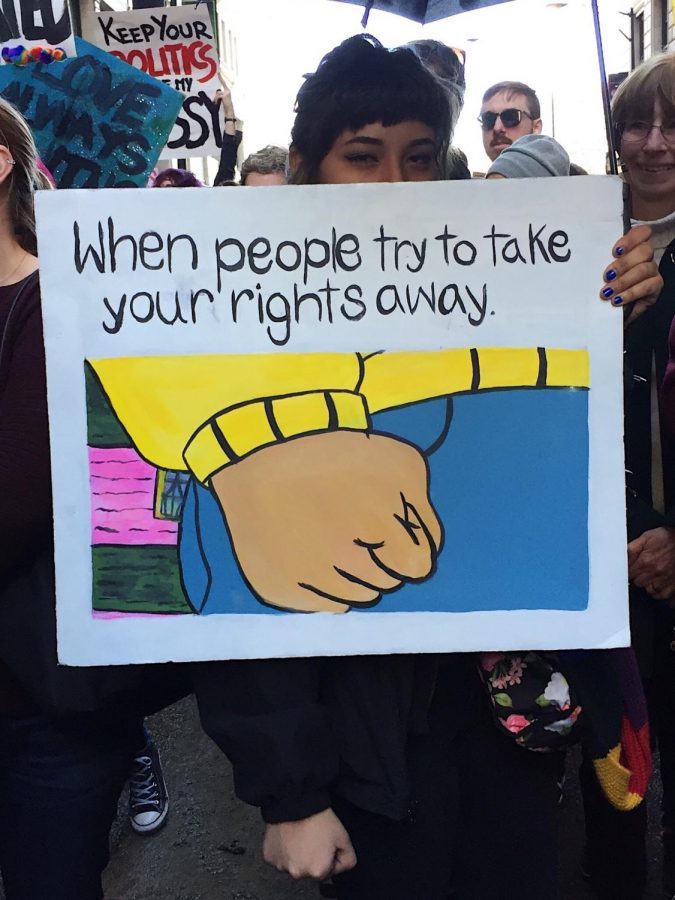Why it Matters: Birth Control
Photo By Bella Vargas
A demonstrator at the Women’s March shows her frustration over people taking her rights away.
October 20, 2017
A topic that shouldn’t have to fall on the political spectrum; access to birth control in a well developed country in 2017. Ninety-nine percent of women in the US have used birth control at some point in their lives, according to a study done by the CDC. Whether it be condoms, IUDs, or the pill, women are taking steps to prevent pregnancy and these things should be covered as a basic human right.
Birth control is great for its original use: preventing pregnancy in sexualy active women who are not ready to become mothers. But it is also a medical necessity for those with disorders like endometriosis, heavy periods, polycystic ovary syndrome, and is often used to treat acne. The Affordable Care Act covers contraception with no additional co-pay, but the Trump administration is trying to dismantle this legislation every day.
In the United States, you cannot access birth control without a prescription and in many cases where women don’t have insurance, it comes out of pocket. This can be a huge disadvantage for low-income women who have a hard enough time seeing a doctor for basic needs. Even Russia has laws that ensure contraception is available at no cost.
Many of these women rely on supplemental free health care from clinics like Planned Parenthood, which offers contraception, STD testing, sex education, cancer screenings, and much more for men and women alike. These clinics have been under attack recently, as male politicians take it upon themselves to control the bodies of women who they have never met.
The core of this problem is the idea among conservative politicians that women should be punished for having sex, which is ironic because they make sure that viagra is backed by federal funding.
Birth control is a necessary asset for women who want to plan when they will have children – if ever – and focus on making a successful life and advancing their education and career. Contraception matters because it protects the health and future of women across the country and everyone should be supportive of making it accessible to all women, no matter their social or economic status.










